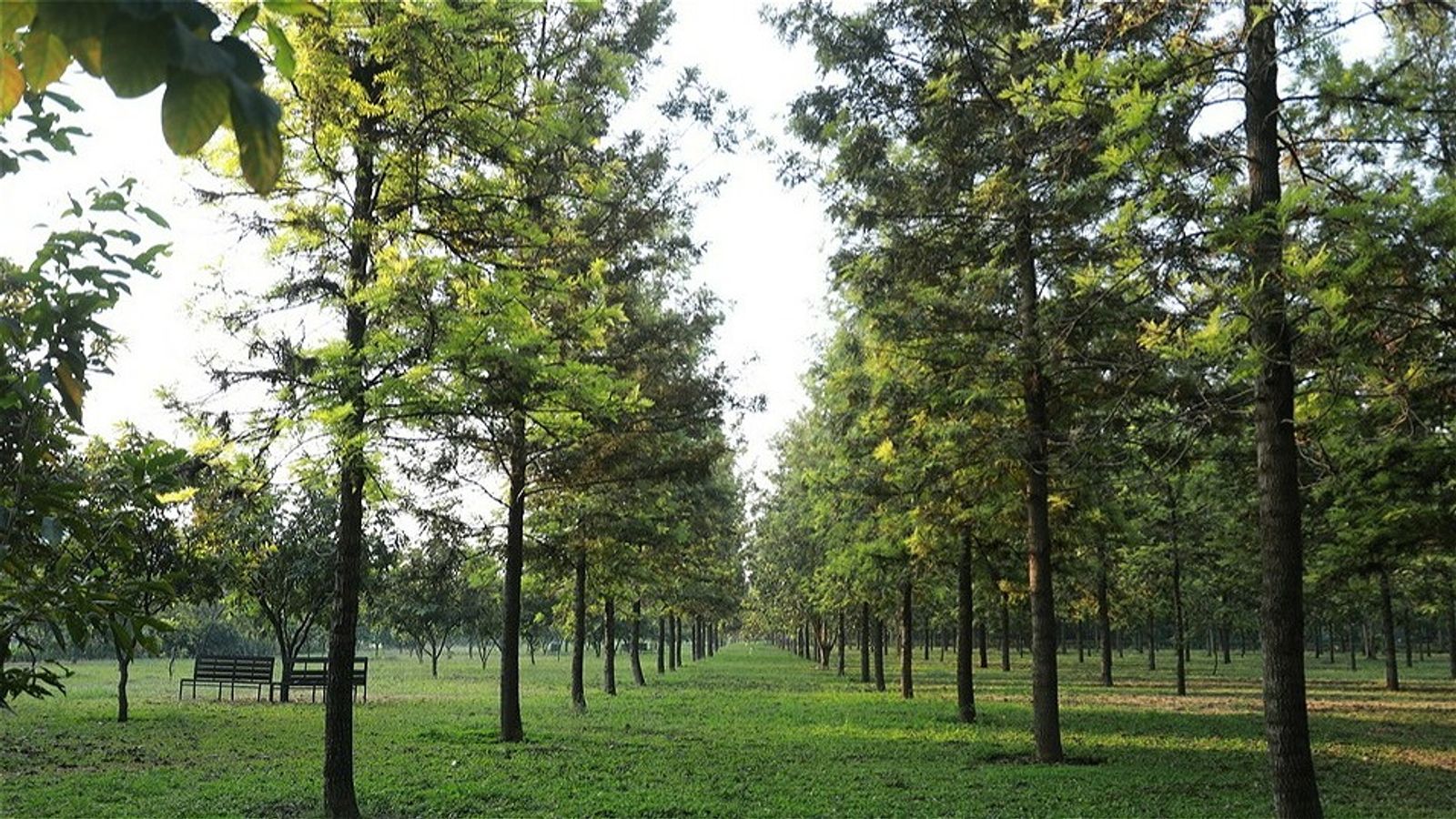SUSTAINABILITY FORMS ONE OF THE MOST IMPORTANT PILLARS OF ŠKODA AUTO VOLKSWAGEN INDIA PRIVATE LIMITED (SAVWIPL).
Over the years of its operation in India, the company has undertaken several projects and activities in the field of sustainability.
Environmental responsibility is a part of Škoda Auto Volkswagen India Private Limited's corporate strategy. It is not possible to be part of a globally interconnected world without accepting one’s share of responsibility for the environment and for future generations. This is why Škoda Auto Volkswagen India Private Limited strives to offer products that are not only safe, practical, and comfortable, but also environment friendly.
Throughout the development process, we endeavour to minimize fuel consumption and exhaust emissions, utilizing the latest technology available.
The company is constantly working to reduce the negative impacts of our manufacturing process on the environment or at least fulfil our responsibility to replenish as much as we end up impacting the environment. As part of the Group Mission Statement for the Environment - ‘Go to Zero’, we intend to become a carbon neutral company by 2050.
By 2025, we plan to reduce our total life cycle Greenhouse Gas Emissions of passenger cars and light duty vehicles by 30% compared to 2015. To achieve these goals, the company has undertaken some initiatives under the ‘Green Future’ philosophy, which include sourcing most of the energy from sustainable sources like solar, wind, hydro power or/and Bio gas. By the second half of the decade, Škoda Auto Volkswagen India Private Limited aims to be 100% reliant on sustainable sources of power for its energy needs.
Our roof top solar power project which would reach 18 MW this year for instance, is one of the largest in the country. It contributes to 35% of the plant’s total electrical consumption and will bring over 18000 Tons of per annum reduction in CO2 emission from the production process.
Škoda Auto Volkswagen India Private Limited operations at Pune and Chhatrapati Sambhajinagar (formerly known as Aurangabad) are zero liquid discharge facilities.
The company is also taking proactive steps to conserve run off water by using a combination of trenches and bunds to improve rainwater harvesting in villages facing drought-like conditions.
The Company’s off-site water management programmes have supported in making the company earn the distinguished ‘Net Water Positive’ certification by DQS India Pvt. Ltd. This certification is post the ‘Zero Waste to Landfill’ certification awarded by TUV Nord in 2020. It is also certified as meeting the GOLD standard for Škoda Auto Volkswagen India Private Limited sustained initiatives toward water conservation and replenishment activities across its manufacturing operations. In the year 2020, our manufacturing facility became water positive.
Off-site Water Stewardship programmes
Škoda Auto Volkswagen India Private Limited off-site water stewardship endeavours encompass water conservation measures in villages and industrial areas in different parts of the State of Maharashtra.
In the last 3 years the company has created approximately 599 million litres of rainwater harvesting capacities:
- 174 million litres in Warzadi Village, Chhatrapati Sambhajinagar (formerly known as Aurangabad)
- 40 million litres in Green Zone, Shendra Industrial Area, Chhatrapati Sambhajinagar (formerly known as Aurangabad)
- 141 million litres in Deoni Taluk, Latur
- 244 million litres in Naiphad, Khed Taluka, Pune
Recognising the need to also conserve soil and increase green cover, Škoda Auto Volkswagen India Private Limited has undertaken substantial tree plantation projects over the last 3 years:
- 25,000 trees of native species in Chhatrapati Sambhajinagar (formerly known as Aurangabad) (Oxygen Park)
- 11,000 trees of native species in Green Zone Shendra Industrial Area (The Green Hub)
- 27,000 trees as part of agro-forestry and social forestry in Deoni Taluk, Latur
- 9000 trees in Naiphad, Khed Taluka, Pune
- 583,000 trees for restoration of 100 hectares of degraded mangrove forests in Alibaug

